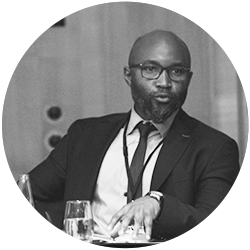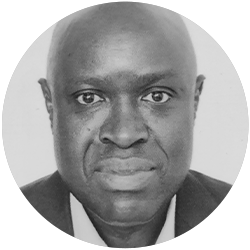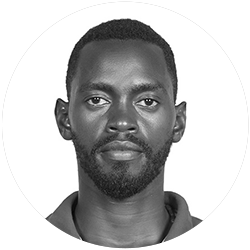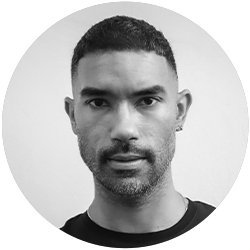Wednesday 14 June
Nairobi, Kenya
This session examined climate- and natural resource-related stresses and conflict reduction. The focus was on inclusive approaches across sectors and linking local, national and regional responses.
Listen to the full panel session
Panellist Spotlight: Anna Louise Strachan
Panellist Spotlight: Jimmy Awany
Moderator

Kwesi Sanscullotte-Greenidge – World Food Programme
Dr Kwesi Sansculotte-Greenidge is the Conflict and Access Advisor at the World Food Programme. With over 15 years of experience in the areas of policy analysis and governance, along with a PhD focusing on conflict resolution, Kwesi’s focus has been on helping developing states reach their full potential through the sustainable management of conflict and natural resources and the use of innovative governance models. Kwesi’s work and research has spanned Africa, the Caribbean Sea basin, the Guianas and the Pacific Islands.
Panellists:

Wafula Okumu – Concordis International
Dr Wafula Okumu is the lead researcher for the XCEPT Research Fund award on “promoting locally owned, regionally focused international responses to transboundary insecurity in the Central African region” with Concordis International. He is the founding Director of The Border Institute (TBI) and an honorary fellow at the Centre of African Studies at the University of Edinburgh. He has served in various positions in international organisations and taught at several universities in the United States, Canada and Japan. Among his notable achievements are support to the African Union High-level Implementation Panel on Sudan and South Sudan (AUHIP) in negotiations on border issues, drafting the AU strategy on enhancing border management in Africa and drafting IGAD’s policy framework on informal cross-border trade. His research and publications have covered a variety of topics ranging from borders to democracy, human rights, terrorism, peace, international institutions and humanitarian assistance in Africa.

Anna Louise Strachan – Bodhi Global Analysis
Anna Louise Strachan has over 12 years’ experience managing and undertaking research and analysis for a range of NGOs, bilateral donors and international organisations, including Global Affairs Canada, the European Commission, the Australian Government, the Commonwealth Secretariat and United Nations agencies. Anna is a conflict and gender specialist with extensive experience conducting international development research in Sub-Saharan Africa, Southeast Asia and the Middle East. She was the lead author of DFID’s Gender and Conflict Topic Guide, and a member of the United Nations Research Institute for Social Development’s Gender and Conflict team when she was a visiting fellow at the institute. Most recently, Anna has focused on marginalised groups in fragile and conflict affected states, with a particular emphasis on harmful traditional practices. Anna is leading research by Bodhi Global Analysis on natural resources management across borders under the XCEPT Research Fund. Anna is currently based in Nairobi.

Jimmy Awany – The Bridge Network, South Sudan
Jimmy Awany is part of the Bridge Network in South Sudan, which is a South Sudanese-led research group that frequently collaborates with the LSE Conflict and Civicness Research Group’s PeaceRep-funded research. Jimmy has worked with several organisations on a range of governance and peacebuilding programmes in Uganda, Kenya, Sudan, and South Sudan. He brings extensive practical experience engaging with civil society actors in the region through this work. He holds a BA in Social Sciences from Makerere University and an MSC in Development Studies from the School of Oriental and African Studies (SOAS).

Matthew Benson – London School of Economics and Political Science
Dr Matthew Benson is the Sudans Research Director in the LSE’s Conflict and Civicness Research Group, and a lead researcher within PeaceRep. Matthew is an economic historian of Africa whose recent research identifies how colonial, rebel and state revenue raising practices in the Sudans contributed to states that work better for a minority in power rather than most people in either country. Matthew’s research informs academic, policy and practice-oriented debates and is shaped by his professional background that has mixed research with operational roles. Over the past 15 plus years, Matthew has held posts in South Sudan with Crown Agents and in Sudan with Médecins Sans Frontières. He has also conducted research on how to provide public services more equitably in conflict-affected societies with the World Bank, the Rift Valley Institute, the Overseas Development Institute, the Institute of Development Studies, and UNHCR. Matthew holds a PhD and MA from Durham University, an MA from the Institute of Development Studies at Sussex, and a BA from Tufts University.
